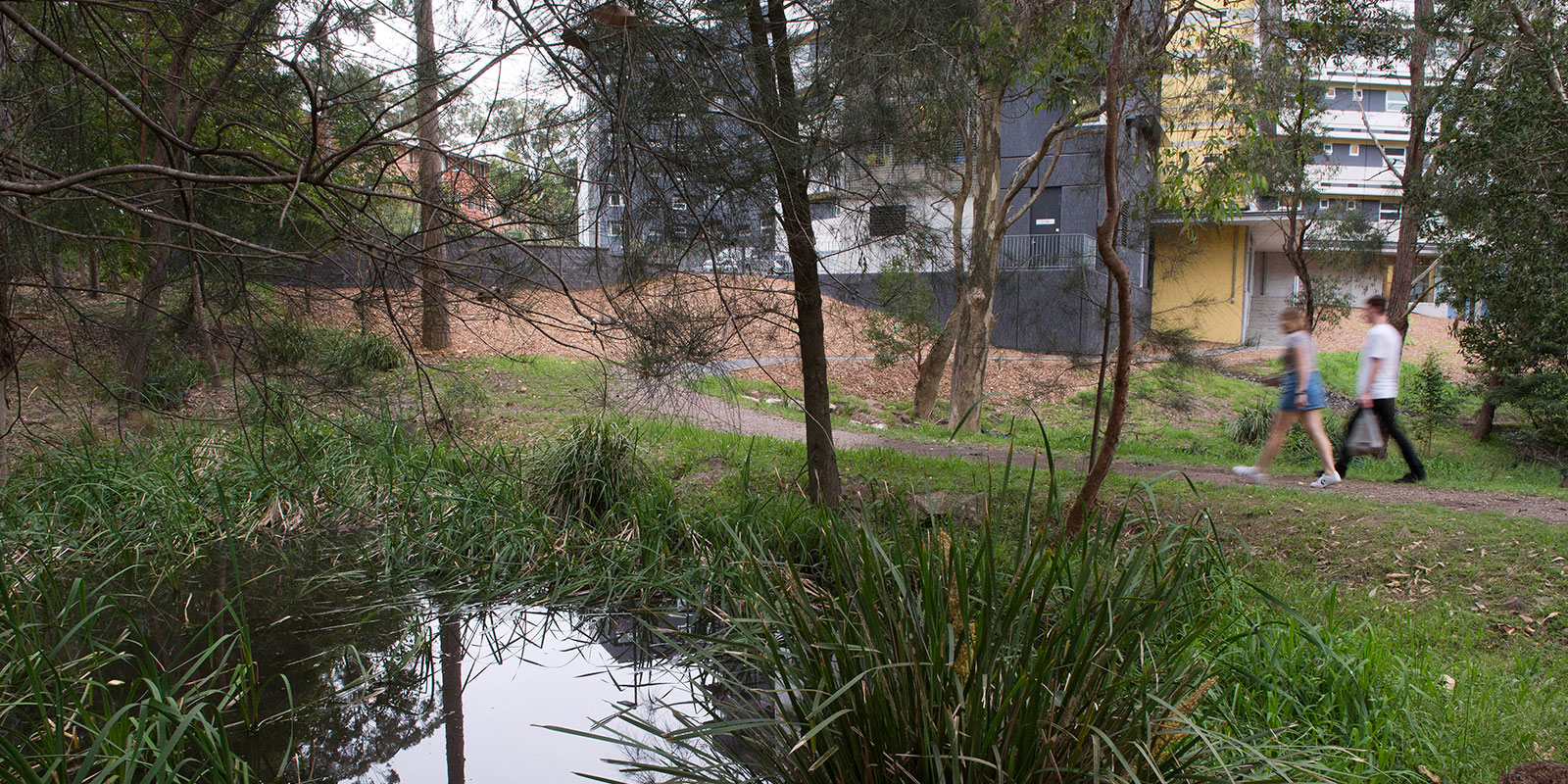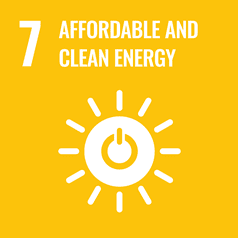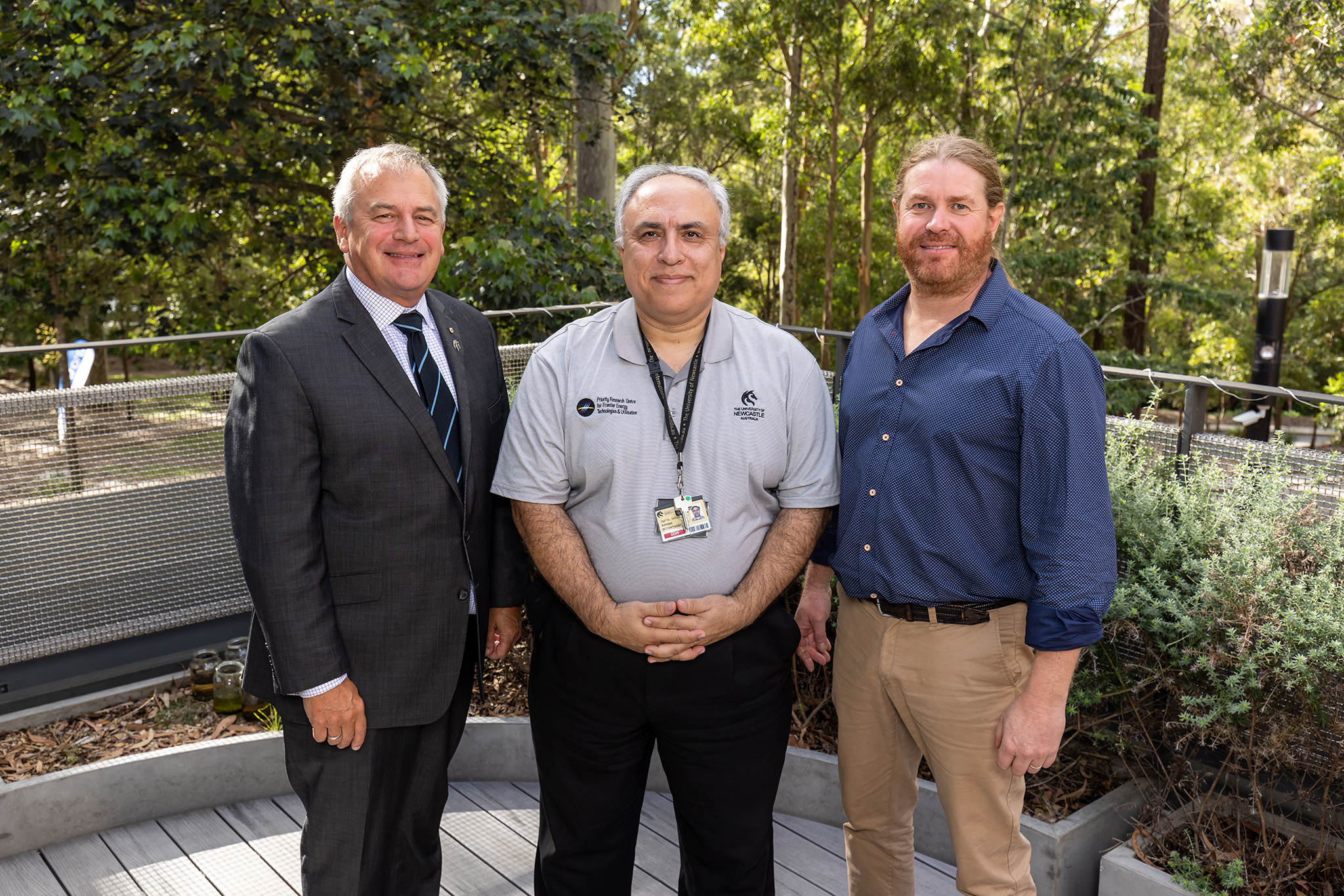

Goal 7:
Affordable and Clean Energy
Policy Development for Clean Energy Technology
Through research, education, and engagement, the University of Newcastle actively informs and supports policy development in clean energy and energy-efficient technologies across all levels of government — local, state, national, and global.
Local
We collaborate closely with Lake Macquarie City Council (LMCC) in areas such as the circular economy and renewable energy, helping shape local strategies that promote sustainable communities and energy transitions.
Regional
In 2024 the University of Newcastle celebrated the first year of its Trailblazer for Recycling and Clean Energy (TRaCE) program. The event, attended by over 200 industry leaders, highlighted $117 million in co-funded research projects focused on solar and hydrogen technologies. Launched by Senator Anthony Chisholm, TRaCE promotes Australia’s green economy and advances sovereign manufacturing. The program supports projects like the world’s first printed solar manufacturing facility, led by Professor Paul Dastoor, and sustainable fuel development by Professor Behdad Moghtaderi’s team.
National
In 2024, the University of Newcastle’s Centre for Innovative Energy Technologies, led by Laureate Professor Behdad Moghtaderi, advanced global hydrogen ammonia safety research in partnership with Singapore’s Agency for Science, Technology and Research (A*STAR) to inform policy development. This collaboration, part of Singapore’s governments Low-Carbon Energy Research Programme, focuses on mitigating risks associated with large-scale hydrogen ammonia storage. Hydrogen, difficult to store and transport, is often converted into ammonia for easier handling, which is then converted back to hydrogen for use. While ammonia is an efficient hydrogen carrier, it presents safety challenges. To address these, Professor Moghtaderi and his team will build a pilot-scale detonation tube to study explosion characteristics, helping establish safety buffers for ammonia storage facilities in Singapore. This project is crucial for ensuring safe and scalable hydrogen storage as Singapore transitions to cleaner energy. The work will contribute to making hydrogen a more viable energy source globally by enhancing ammonia safety standards.
Global
Globally, the University serves as a key partner of the Secretariat of the Pacific Regional Environment Programme (SPREP). Through our Pacific Node, we work collaboratively with governments, communities, and industry on issues such as climate resilience, environmental governance, waste management, and sustainable fuels, helping to shape environmental and energy policies across the Pacific region.
Through these partnerships and our evidence-based approach, the University of Newcastle contributes meaningfully to policy frameworks that support clean energy innovation and energy-efficient technology adoption — locally and worldwide.
Read more about the Green Ammonia Project.

The University of Newcastle acknowledges the traditional custodians of the lands within our footprint areas: Awabakal, Darkinjung, Biripai, Worimi, Wonnarua, and Eora Nations. We also pay respect to the wisdom of our Elders past and present.